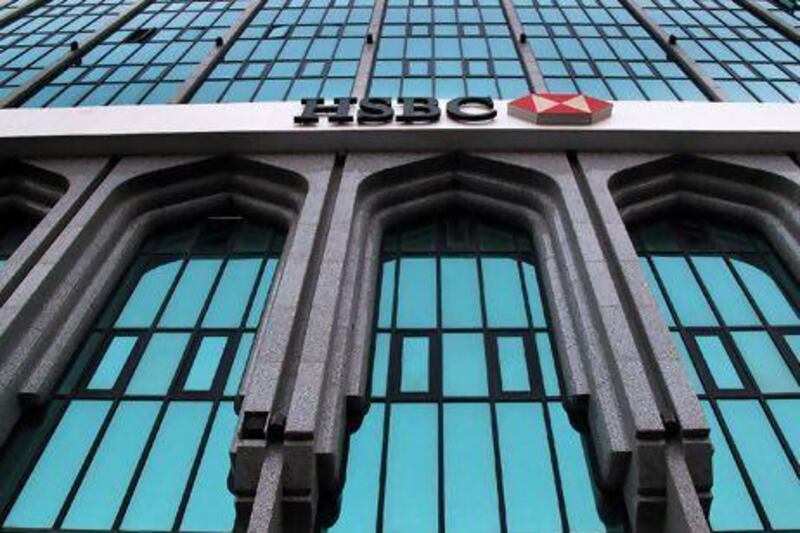Last summer, the biggest international banks in the UAE were facing fines totalling billions over failed anti-money laundering practices and even the loss of their licences to operate in the United States.
A year later, and the costs of putting things right are almost as severe. The entire sector is feeling the change - and few are happy about it.
HSBC was censured last July by the US Senate for lax anti-money laundering practices. The bank acknowledged its services were used by Iranian companies subject to sanctions and Mexican drug cartels and made a fulsome apology.
With the financial sector still reeling, a month later Standard Chartered was targeted by the New York department for financial services for facilitating trade with Iran, Myanmar and other countries subject to sanctions.
HSBC eventually settled for US$1.9 billion in fines, while Standard Chartered was subject to a $667 million penalty, among the biggest fines ever levied on financial firms.
For HSBC, the costs of avoiding future fines have become almost as punishing as the penalties themselves.
HSBC Middle East "has doubled its compliance staff over the last two years as the bank is adopting and enforcing the highest compliance standards across its business", a spokesman for the bank said.
It now employs 3,500 people globally in compliance roles, a figure which has increased tenfold since 2010, the spokesman said, declining to provide regional compliance staff numbers.
HSBC said in its annual report that the costs of its compliance have doubled since 2010 to more than $500m worldwide. As part of fixing its controls, HSBC told shareholders recently it had spent $290m on "remedial measures" and plans a review of its customer files across its entire group - an exercise expected to cost $700m over the next five years.
Standard Chartered has hired 30 to 40 staff to its financial crime risk team in the past year, said one person with knowledge of the bank's hiring, speaking on condition of anonymity. The majority of the new recruits are based in Singapore, with three expected to be hired in the Middle East.
"Together with our regulators around the world, we are working to increase banking transparency as part of the international fight against financial crime," a spokesman for Standard Chartered said, declining to confirm how many staff had been hired regionally.
HSBC and Standard Chartered may have been high-profile victims - they are respectively the two biggest international banking presences in the UAE.
But since 2009, the US office of foreign assets control has fined banks including Barclays, Credit Suisse and ING. JPMorgan and the accounting firm Deloitte have also come into regulators' crosshairs more recently.
The costs have been felt across the industry. Banks including Citibank and BNY Mellon have beefed up local compliance teams, hoping to leave nothing to chance.
That has left some bankers grumbling privately that internal processes have become more cumbersome and bureaucratic than in the past - while accusing rivals of being slow to address anti-money laundering issues. Bank supervisors, knowing the challenges, are now attempting to forge consensus among financial firms.
The Bank for International Settlements, the umbrella organisation of central banks, recently opened a consultation among global lenders on how they can best meet anti-money laundering standards.
"The inadequacy or absence of sound management can increase the exposure of banks to serious risks, especially reputational, operational, compliance and concentration risks," the BIS said.
"Recent developments, including robust enforcement actions taken by regulators and the corresponding direct and indirect costs incurred by banks due to their lack of diligence in applying appropriate risk management policies, procedures and controls, have highlighted those risks."
But the new attitude to risk has meant difficulties for customers. HSBC and Barclays have turned away Iranian, Sudanese and Syrian nationals who cannot verify the source of their income.
HSBC also gave many of its small business customers 60 days to find a new bank if they did not meet certain criteria, a move in part the result of higher compliance costs.
Financial firms are wary of taking on customers without a relationship manager who can keep tabs on a customer's income.
Banks facing pressures to cut costs because of the stringent capital requirements known as Basel III - intended to prevent a repeat of the global financial crisis - are likely to find this an increasingly costly exercise. Be that as it may, banks can no longer afford to treat compliance as an afterthought.





